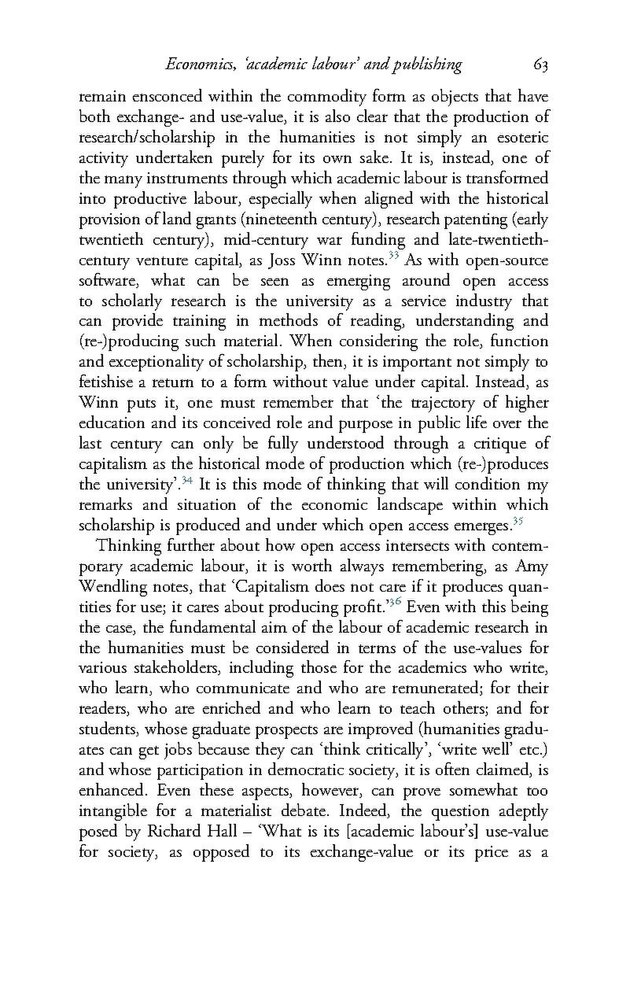remain ensconced within the commodity form as objects that have both exchange- and use-value, it is also clear that the production of research/scholarship in the humanities is not simply an esoteric activity undertaken purely for its own sake. It is, instead, one of the many instruments through which academic labour is transformed into productive labour, especially when aligned with the historical provision of land grants (nineteenth century), research patenting (early twentieth century), mid-century war funding and late-twentieth-century venture capital, as Joss Winn notes.33 As with open-source software, what can be seen as emerging around open access to scholarly research is the university as a service industry that can provide training in methods of reading, understanding and (re-)producing such material. When considering the role, function and exceptionality of scholarship, then, it is important not simply to fetishise a return to a form without value under capital. Instead, as Winn puts it, one must remember that ‘the trajectory of higher education and its conceived role and purpose in public life over the last century can only be fully understood through a critique of capitalism as the historical mode of production which (re-)produces the university’.34 It is this mode of thinking that will condition my remarks and situation of the economic landscape within which scholarship is produced and under which open access emerges.35
Thinking further about how open access intersects with contemporary academic labour, it is worth always remembering, as Amy Wendling notes, that ‘Capitalism does not care if it produces quantities for use; it cares about producing profit.’36 Even with this being the case, the fundamental aim of the labour of academic research in the humanities must be considered in terms of the use-values for various stakeholders, including those for the academics who write, who learn, who communicate and who are remunerated; for their readers, who are enriched and who learn to teach others; and for students, whose graduate prospects are improved (humanities graduates can get jobs because they can ‘think critically’, ‘write well’ etc.) and whose participation in democratic society, it is often claimed, is enhanced. Even these aspects, however, can prove somewhat too intangible for a materialist debate. Indeed, the question adeptly posed by Richard Hall – ‘What is its [academic labour’s] use-value for society, as opposed to its exchange-value or its price as a
